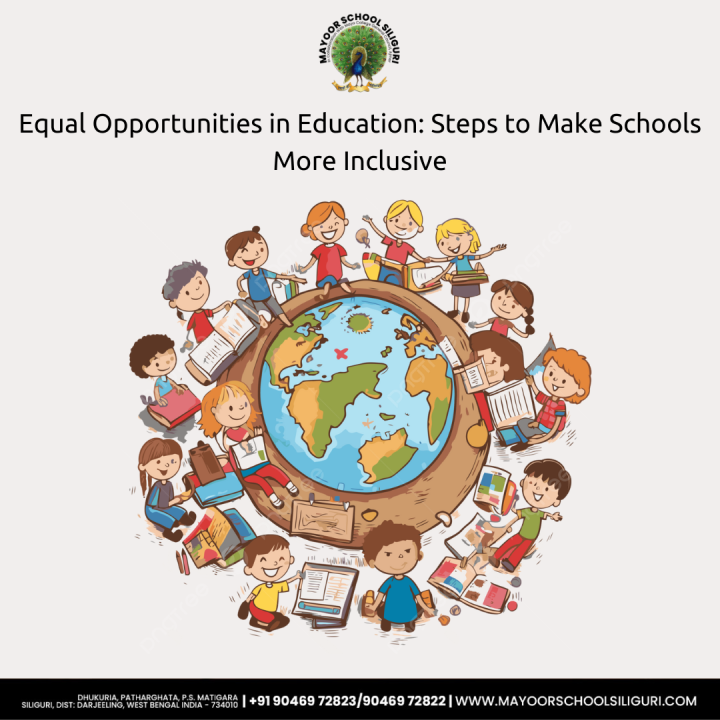
As Nelson Mandela famously said, "Education is the most powerful weapon which you can use to change the world."
Education is the bedrock of an enlightened society, yet equitable access remains a formidable challenge. However, for this transformative power to be fully realized, schools must cultivate an environment of inclusivity, ensuring that every learner regardless of socio-economic status, ability, or background receives equal opportunities to thrive.
UNESCO adheres, "Inclusive education is the process of strengthening the capacity of the education system to reach out to all learners."
Inclusivity transcends the mere act of admitting diverse students into classrooms; it necessitates a holistic transformation in pedagogical approaches, institutional policies, and societal attitudes. The Indian Constitutional law also emphasizes the right to education described in article 21A.
Steps Towards an Inclusive Educational Framework
To accommodate diverse learning styles, schools must embrace the Universal Design for Learning (UDL) framework, which promotes flexible teaching methods tailored to individual needs. This includes multimodal instruction leveraging auditory, visual, and kinesthetic techniques to ensure knowledge dissemination is not monolithic.
Financial barriers should never dictate access to quality education. Governments and institutions must champion scholarship programs, subsidized tuition, and free learning materials to bridge the gap for underprivileged students. As former U.S. Secretary of Education Arne Duncan emphasized, "Education is the civil rights issue of our generation."
As John Dewey wisely noted, "Education is not preparation for life; education is life itself."Teachers wield the power to either foster inclusivity or inadvertently perpetuate exclusion. Comprehensive training programs in cultural competence, differentiated instruction, and special education methodologies are paramount.
4. Enhancing Accessibility for Differently-Abled Students
Schools must be designed to accommodate students with disabilities, ensuring physical infrastructure is barrier-free and assistive technologies such as speech-to-text software, Braille resources, and sign language interpreters are readily available. Along with that, special care should be fostered for students with special needs.
To dismantle systemic bias and cultivate a truly inclusive learning environment, educational institutions must go beyond surface-level commitments and take decisive action. The implementation of strict anti-discrimination policies is crucial in safeguarding the rights and dignity of every learner, ensuring that no student is marginalized due to their race, gender, socioeconomic background, disability, or any other factor. These policies should be comprehensive, enforceable, and accompanied by transparent grievance redressal mechanisms to hold institutions accountable.
Furthermore, awareness workshops and bias training play a pivotal role in challenging ingrained prejudices and fostering empathy among students, educators, and administrative staff. By integrating diversity education into curricula and organizing interactive sessions on inclusivity, schools and universities can shape a generation that not only acknowledges but actively combats discrimination.
Malala Yousafzai’s words, "One child, one teacher, one book, one pen can change the world," remind us of the profound impact education holds in dismantling barriers and igniting social transformation. When every student is provided an equal platform to learn and grow, we do not merely educate individuals, we empower changemakers who will go on to build a more just and equitable world.
By championing these initiatives, educational institutions can become catalysts for societal progress, where fairness and respect are not just ideals but lived realities for all. True inclusivity in education is not an unattainable utopia but a tangible reality within our grasp one that hinges on the unwavering commitment of educators, policymakers, and society as a whole. As we strive to forge a world where knowledge transcends privilege and becomes an unalienable right, let us be guided by the immortal words of Mahatma Gandhi: "Be the change that you wish to see in the world."
By championing these transformative measures, we illuminate the path toward a future that is not only enlightened but also equitable and profoundly inclusive — a world where every learner, regardless of their circumstances, is empowered to thrive and unlock their fullest potential. As the best school in Siliguri, we are committed to fostering an environment that nurtures excellence, innovation, and holistic growth for all students.
Read More Article: A Guide to Developing Math Skills in Children